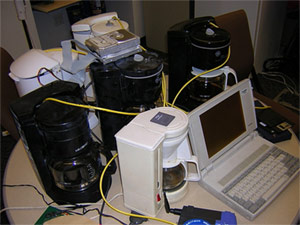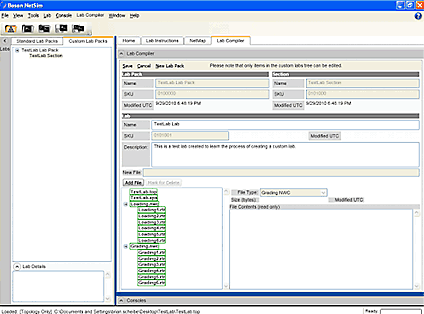By Thomas Chipman
“The network is slow” … four little words that are the bane of every network administrator. You will find that no matter how well a network design meets an organization’s current or projected needs, the day will surely come when those four dreaded words will find their way into a trouble ticket. If anecdotal evidence is to be believed, you will most likely hear those four words about 12 minutes before you had planned to head out for a weekend getaway; and they are usually uttered by your CEO as she is standing in your doorway with her laptop. Well, today’s that day and she isn’t going to leave your office until you’ve worked your magic. After all, that IS why she made YOU senior vice architect of network engineering.
“The Network is Slow” – An Introduction to EtherChannel
Feb 28, 2013 11:57:00 AM / by Kelson Lawrence posted in networking, preventing accidental loops, slow network, etherchannel, introduction to etherchannel
CCNP SWITCH Exam - Router Redundancy Protocols
Feb 9, 2011 8:31:00 AM / by Kelson Lawrence posted in GLBP, networking, VRRP, SWITCH, router, CCNP, router protocols, HSRP, redundancy
By Josh E.
Being able to implement first hop router redundancy protocols is one of the objectives listed for Cisco’s 642-813 SWITCH exam. Cisco supports three first hop redundancy protocols: Gateway Load Balancing Protocol (GLBP), Hot Standby Router Protocol (HSRP), and Virtual Router Redundancy Protocol (VRRP). This article provides an overview of each of these protocols.
NAT and PAT - What's the Difference?
Feb 8, 2011 10:22:00 AM / by Kelson Lawrence posted in networking, NAT, PAT
By Brian Scheibe
Network Address Translation (NAT) and Port Address Translation (PAT) both map IP addresses on an internal network to IP addresses on an external network. Which method of address translation you use depends on the types of networks that you are translating and the number of available IP addresses that you have.
VRRP, HSRP and the Master Router
Feb 8, 2011 10:22:00 AM / by Kelson Lawrence posted in networking, VRRP, HSRP, Master Router
By Brian Scheibe
Does VRRP choose a Master (Active) router in the same way as HSRP?
Cisco Network Simulator: Can it be Used in a Classroom? (Part 3 of 3)
Feb 8, 2011 10:21:00 AM / by Kelson Lawrence posted in ccnp class, NetSim 8, Cisco Network Simulator, networking, ccna class
By Brian Scheibe
Step 5: Use the Lab Compiler to Create the Lab Pack
ASA Technology Update Part 2 of 4
Feb 8, 2011 10:19:00 AM / by Kelson Lawrence posted in adaptive security appliance, asa, technology, networking, botnet traffic filter
By Ryan Lindfield
Botnet Traffic Filter
Another exciting feature released in the 8.2 release is the Botnet Traffic Filter. This new technology enables the ASA to monitor both inbound and outbound traffic and to compare the external IP addresses and hostnames to a dynamic database, or blacklist, of offensive IP addresses and domain names. Essentially, after purchasing the license for this feature (a 30 day trial is available), your firewall gains insight into the latest known locations of botnet control points, SPAM distribution points, and other known hostile hosts.
ASA Technology Update Part 4 of 4
Feb 8, 2011 10:18:00 AM / by Kelson Lawrence posted in adaptive security appliance, asa, networking, netflow
ASA Technology Update Part 3 of 4
Feb 8, 2011 10:18:00 AM / by Kelson Lawrence posted in adaptive security appliance, asa, technology, anyconnect essentials, networking
By Ryan Lindfield
AnyConnect Essentials
AnyConnect Essentials is a new licensing option for Secure Socket Layer Virtual Private Network (SSL VPN) client on the ASA. With the introduction of SSL VPN, Cisco began charging “per connection fees” for remote VPN connections. This came as a shock to many of you who were accustomed to connecting as many users as the box allowed with IPSec and never giving a thought to licensing. The default WebVPN license on the ASA is for two concurrent WebVPN users; each additional user requires additional licensing.





